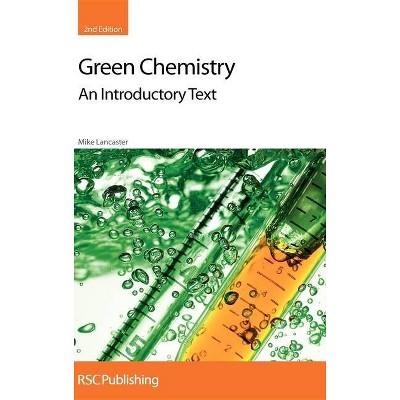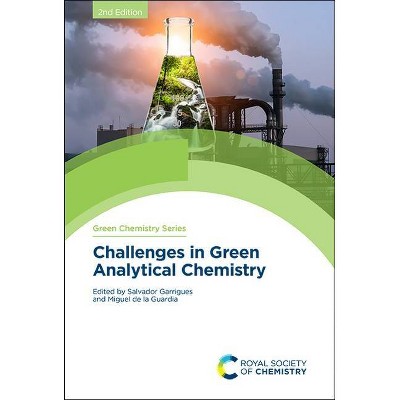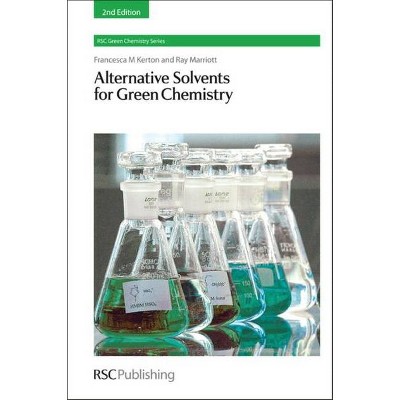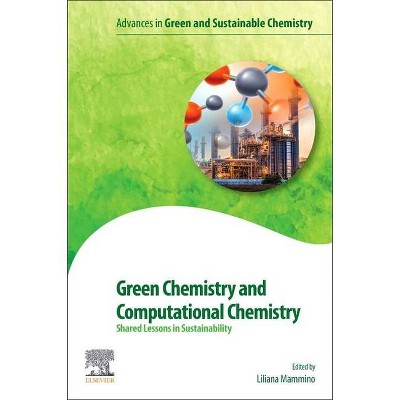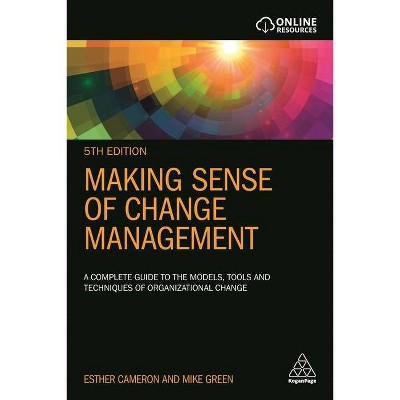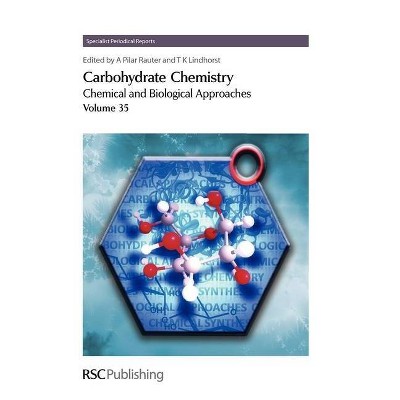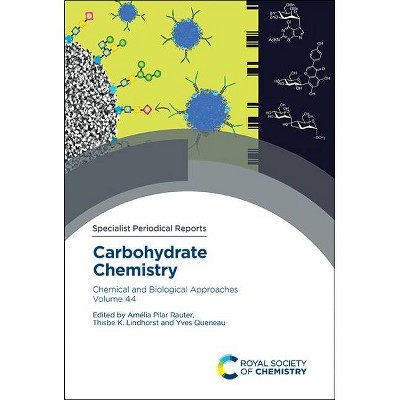Green Chemistry - 3rd Edition by Mike Lancaster (Hardcover)
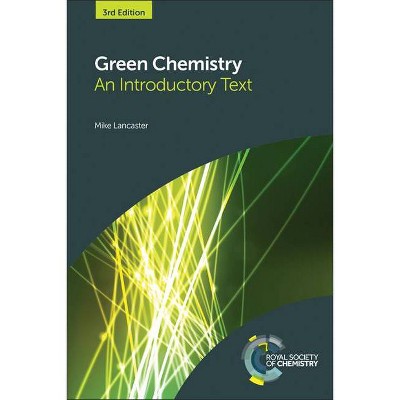
Similar Products
Products of same category from the store
AllProduct info
<p/><br></br><p><b> About the Book </b></p></br></br>Updated throughout, this third edition is suitable for undergraduate and postgraduate courses covering green chemistry, and it explores new ways of developing products and processes.<p/><br></br><p><b> Book Synopsis </b></p></br></br>Updated throughout, the third edition of this fascinating textbook is suitable for undergraduate and postgraduate courses covering green chemistry. It features expanded sections on legislation, measurement and renewable resources, bringing readers the latest developments in this quickly-growing area. Case studies now include more recent examples of real-world applications from industry to demonstrate how the techniques of green chemistry work in practice.<p/><br></br><p><b> From the Back Cover </b></p></br></br><p>Sustainable development, the circular economy and environmental issues are at the forefront of public and Government concern. The field of green chemistry aims to provide environmentally benign products from sustainable resources, using processes that do not harm people or the environment, at the same time as helping solve key societal problems such as climate change.</p> <p>Updated throughout, this third edition features an expanded section on legislation, a revised chapter on measurement, and a substantially re-written chapter on renewable resources, bringing readers the latest developments in this rapidly evolving area. Case studies now include more recent examples of real-world applications from industry to demonstrate how the techniques of green chemistry work in practice.</p> <p>This fascinating textbook is suitable for undergraduate and postgraduate courses covering green chemistry, and it encourages new ways of thinking about how products and processes are developed.</p><p/><br></br><p><b> Review Quotes </b></p></br></br><br><p>Although the title is accurate, it rather underplays the objectives and purpose of the book. The title could just as easily have read "How to minimise cost, maximise safety and improve energy efficiency", thereby possibly widening the interest of potential readers who base their reading purely on a title. The overall text is based on the M.Sc. course "Clean Chemical Technology" at York University; its success can be judged from the fact that this is the third edition. The author suggests that it may be of interest to research and industrial chemists, engineers, and managers wishing to learn more about green chemistry--again, a very modest statement when virtually every aspect of chemistry can utilise most of the principles outlined. </p> <p>The whole is based on the concepts, as described in 12 principles, first outlined in "Green Chemistry Theory and Practice", and published in 1998. Most importantly, the modern business term TBL (Triple Bottom Line) has also been incorporated, where the three strands of social, environmental, and financial accountability are interlinked to provide a long term means of sustainability, so much so that major companies now include the concept and its meaning into their annual reports. However, as with most good intentions, once Public Relations departments get to work, the approach can become somewhat mangled and the real significance diluted. Fortunately, some companies have evolved specialist teams that have now become the driving force for change, minimising waste, energy use, and environmental impact.</p> <p>The division of the subject matter into ten chapters allows readers to switch easily between subject areas. These deal with waste (production problems and prevention), environmental performance (measurement and control), catalysis, organic solvents, renewables (biomass, energy, alternative economies, and biorefining), emerging green technologies and the design of greener processes, finalising with examples of specific industrial case studies, and future predictions. Perhaps, more emphasis could have been placed on Syngas economy, more specifically gasoline products, which is very well developed, and set for a resurgence as fracked gas, already available at massively reduced cost in the US, becomes global. </p> <p>Recent UK acts aimed at reducing environmental pollution [Industrial Emissions Directive, Air and Water Acts, and Registration, Evaluation, Authorisation of Chemicals (REACH), and others] are dwarfed by the four laws on CO2 emissions passed into law from 2010 onwards in the UK. These badly thought-out laws have massively impacted, and massively distorted, the UK's energy market to such an extent that both industrial and domestic user's costs are substantial higher than those found in competitive countries, compounded by being largely hidden from users by a raft of hard-to-locate subsidies. </p> <p>The author was indeed being modest in his claims. There can be little doubt that all chemical companies, large and small, would find benefit in applying at least some of the principles described here.</p>--Ken Jones "Chromatographia (2017) 80:1597"<br><p/><br></br><p><b> About the Author </b></p></br></br>Mike Lancaster works for the Chemical Industries Association, UK. He has nearly 20 years' experience in the chemical industry, and set up the Royal Society of Chemistry Green Chemistry Network with the aim of enhancing research and fostering industry/academia partnerships.
Price History
Cheapest price in the interval: 50 on October 22, 2021
Most expensive price in the interval: 50 on December 20, 2021
Price Archive shows prices from various stores, lets you see history and find the cheapest. There is no actual sale on the website. For all support, inquiry and suggestion messages communication@pricearchive.us
